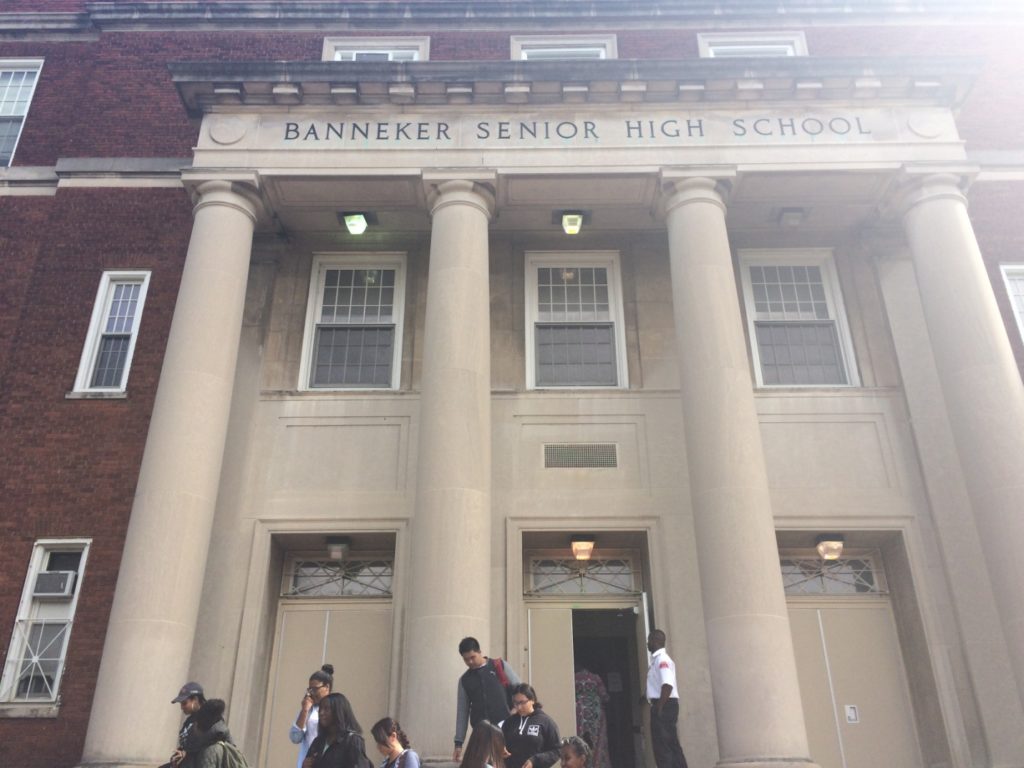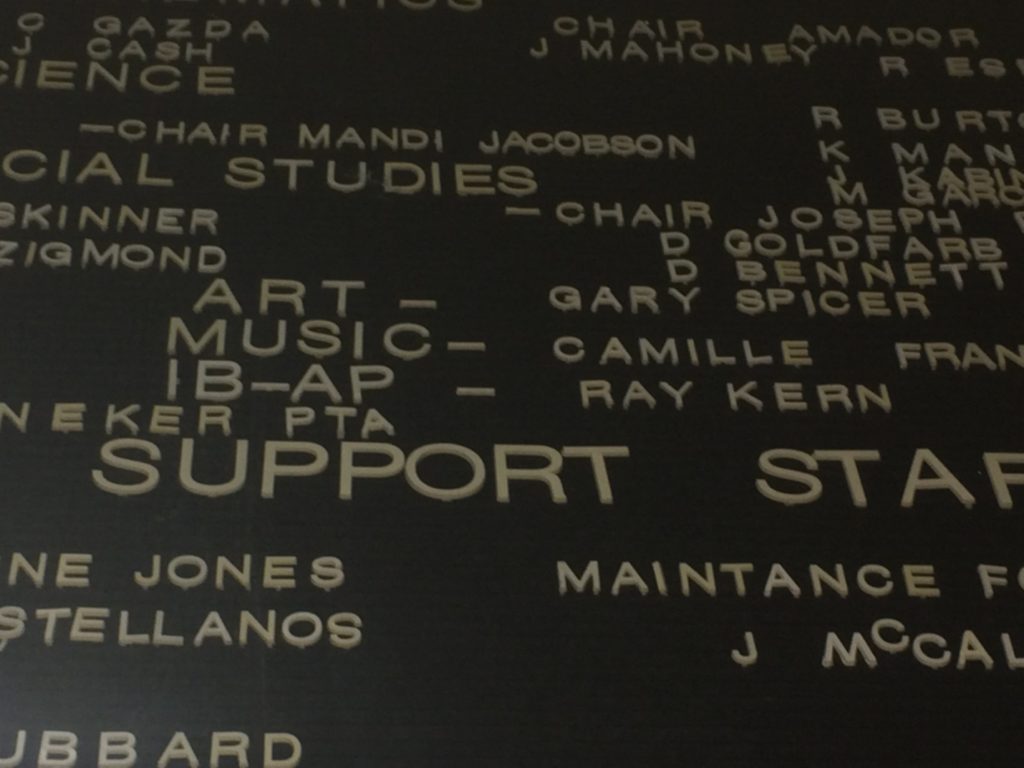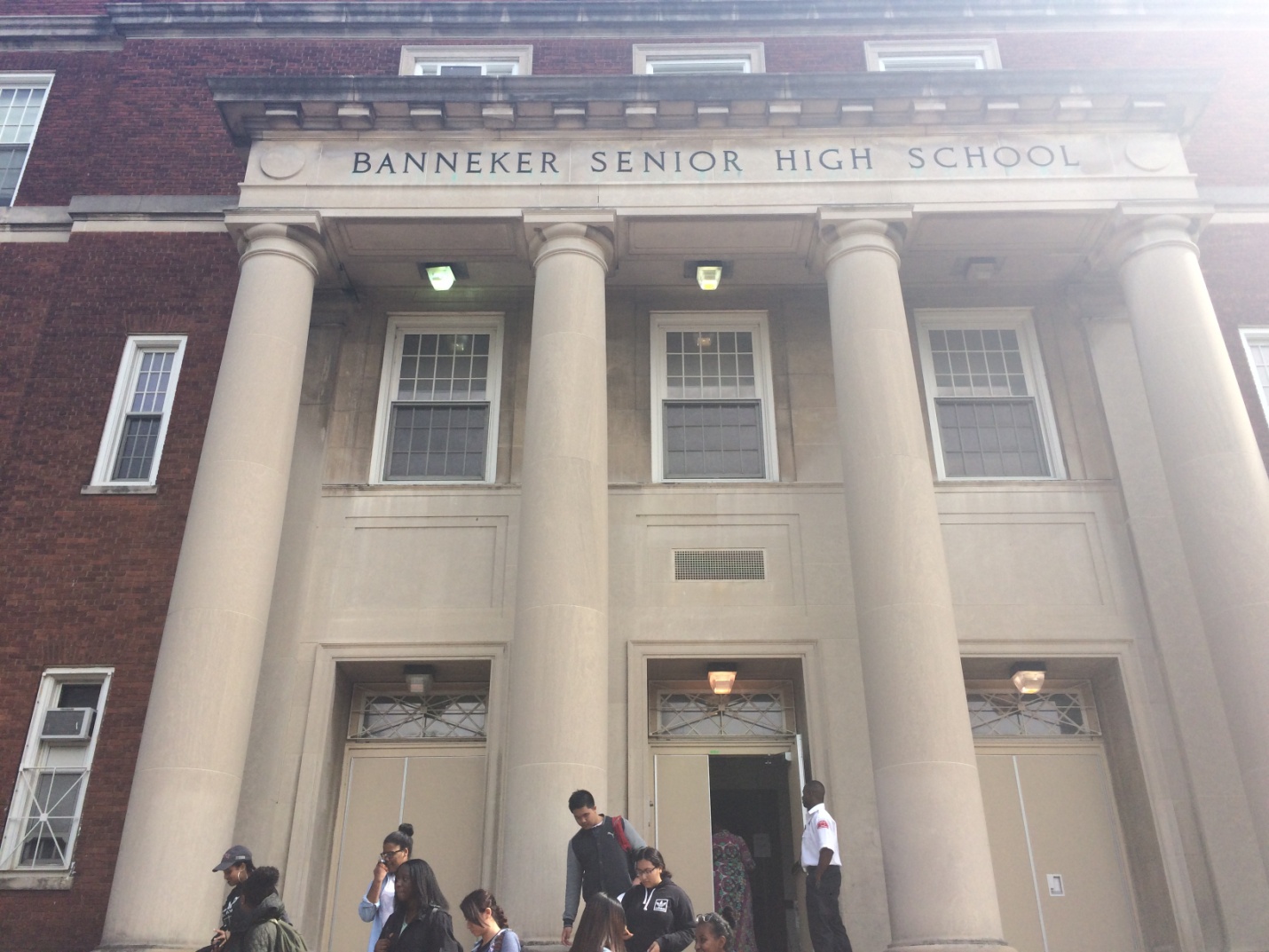Caitlin Ballard
Junior, Benjamin Banneker High School, Washington, DC
Spring 2016
Listen to the story
Storm White is struggling with making a big decision that will impact the rest of her academic career.

White is a sophomore at Benjamin Banneker High School in Washington, D.C. By the end of the school year, she will have to decide whether to sign up for the Advanced Placement or International Baccalaureate program.
The IB program is a rigorous, two-year high school track offered world-wide for juniors and seniors. It requires students to take specific classes in the core curriculum subjects like IB Biology and Math Studies. The first IB program in the U.S. started in 1971. Today, there are 892 diploma program schools.
The AP program is a common U.S. track where students are expected to follow a specific curriculum, but unlike IB, students are provided with electives and can design their line of study. At the end of an AP class, students take an exam, in which if they score well, they can test out of college courses.
“The programs have different goals, as well,” says the website PrepScholar.com. IB stresses writing “not just on the exams themselves, but through the extended essay, a long, college-style research paper required of all IB diploma students. IB also has extracurricular requirements.”
Banneker is one of two schools in the DC Public School system to offer both. However, it was the first IB school in 2002. There are 28 IB students, consisting of juniors and seniors, and about 60 junior AP students at Banneker, out of 394 total students.
However, AP is more focused on exams and excelling in each class individually rather than the program as a whole. Meeting different goals in each specific class is required.
“IB or AP is first of all an individual choice usually based on how much work the person wants to do. “IB is for work-a-holics who want to be trained in research for all subjects, who want a formal course in thinking, and who like to be involved in out-of-school activities of their own choice,” says Raymond Kern, the AP and IB coordinator at Banneker.

There is a small rivalry between the two programs. Some IB students believe the IB track better prepares them for college.
“The IB program is highly rigorous and time consuming. It really is a college preparatory program,” says Mariem Abadir, a junior IB student.
She says that while the AP track offers a variety of courses, IB courses are more like college courses, so you are better prepared when you start college classes.
“In terms of preparation for college,” says Abadir, 16. “IB gives you the level of difficulty that a lot of colleges already have.”
“IB definitely takes the cake in superiority!”
But some AP students feel the same about the AP program.
Spencer Williams is a junior student who decided to go the AP route because it allows him to choose from a variety of different classes.
“AP has AP Human Geography, AP Macro and Micro Economics, AP Art History, AP Music Theory,” said Williams, 16. “There are all these different AP classes in so many different spectrums.”
If Williams had taken IB, he would have no choice in which classes to take for his junior and senior year.
“While AP is quite widespread, the IB program is rarer since schools have to be able to offer enough classes for the diploma,” according to a website called PrepScholar.com.
Both programs are designed to prepare students for college, but there is a small division.
According to Lihem Yossief, a junior AP student, the AP program “prepares you more for the courses in college, compared to IB, while IB helps you with the skills.”
AP courses can also save you money. For example, if Yossief gets a required score on his AP x exam, he wouldn’t have to pay for that class in college.
“AP students have it easier in my opinion,” says Abadir.
“AP offers a choice in the amount of advanced classes the students take.”
According to Kendall White, another AP student, “Both programs are hard but for AP, you can have any classes you want and you know what you’re getting into.”
White also says that the AP program is fun at first, but “when it gets toward the end, you start to stress about whether you are going to pass the [final] exams.”
Storm is struggling with choosing, but is leaning toward the AP program because “it helps with credit and saves money for college”. She has to make a decision very soon.


